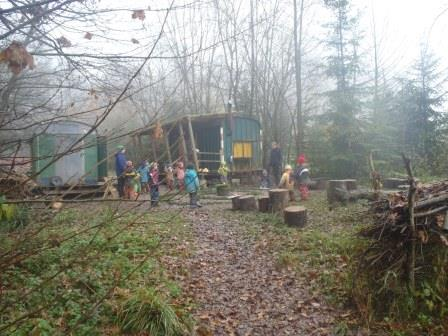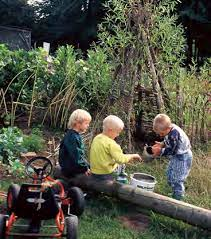
In this issue’s MINKA Learning Lab section, we speak with Dr. Silvia Rode, Director of the Center for Communal Studies and Assistant Dean, College of Liberal Arts. Rode also teaches a variety of classes at USI, including German classes, Cultural Awareness Training (CAT) and Teaching English to Speakers of Other Languages (TESOL) certification classes. Recently, she presented a paper at the International Communal Studies Association Conference (ICSA) in Skanderborg, Denmark, about intentional communities.
Rode first become interested in intentional communities when she researched utopian theory as a graduate student at the University of California, Los Angeles. She states that she was always interested in what people can do to improve or destroy society. Because of this passion in learning about utopias and improving society, she began to research historical and contemporary communities worldwide.
During her last visit in Denmark, Rode again noticed differences in the dynamics and emphasis of intentional communities in the United States and Europe. For instance, she has observed communities in the United States place more emphasis on technology, whereas intentional communities in Europe focus more on group mobility.
This emphasis on group mobility in Europe emerges in how their intentional communities are organized. For instance, each community tends to have its own garden, allowing the community to be self-sustaining. European intentional communities also focus on socialization, with numerous people working together while living together, such as harvesting food together, cooking together and searching for alternative energy. Intentional communities in Europe, particularly in Germany, also tend to emphasize co-generational community living. In many homes in Europe, there are three generations living in one house. This type of living, known as intergenerational positive dependency, has been shown to have numerous benefits on the people who practice this type of co-living.

Along with intergenerational living, many countries in Europe tend to have schools that teach children to work as a group. For instance, in Germany, from the ages of 3 to 6, children go to kindergarten, and they are not taught stereotypical educational subjects during this time. Instead, children learn how to do laundry, make sandwiches, clean their own toilets and garden with each other.
Other kindergartens, called forest kindergartens, also implement teaching outside in any weather so children can learn about the environment. These models of school want children to experience fantasy as long as possible while still learning how to work together and take care of themselves.

In her studies of intentional communities in the United States, Rode observed United States’ intentional communities tend to focus on individualism, especially through technology and physical fitness. In the United States, people place a lot of importance on tangible items, such as property, money and technology, which makes transitioning to communities and aging more difficult. The focus on physical fitness over mental fitness can also have negative consequences, with people who are no longer physically fit being forced to reside in communal living spaces when they are not mentally fit to do so.
While the United States and Europe have different approaches to intentional communities, these types of communities are beneficial to any person at any age. According to Rode, intentional communities are most likely the way of the future due to financial and physical limitations. However, because communities are organic, they are ever changing. But, as long as people learn from each other and implement the best practices they observe, these intentional communities will hopefully continue to have positive effects.

